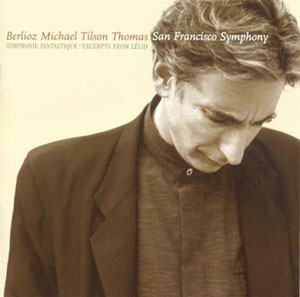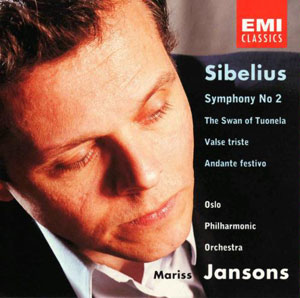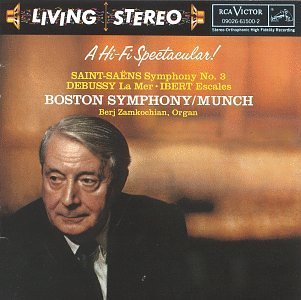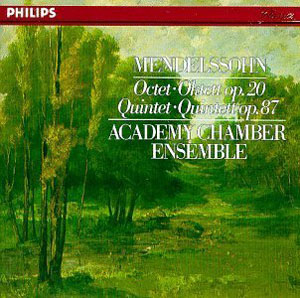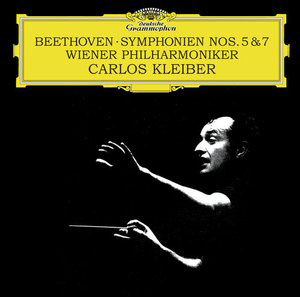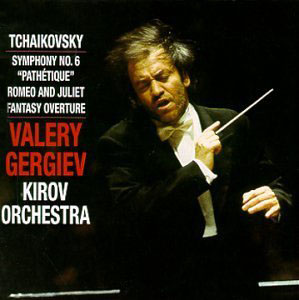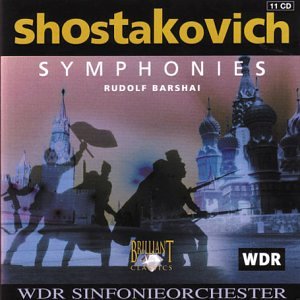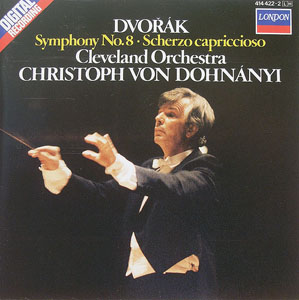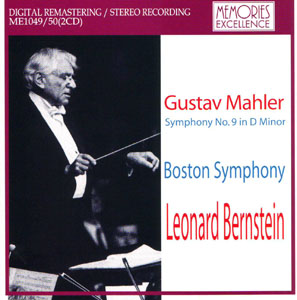Choosing Nine Symphonies Challenge
January 09 2015I saw via violinist.com a fun little challenge put forth by CK Dexter Haven. You have to pick nine symphonies for the desert island. The challenge is that a composer can only be chosen once, only one symphony can be chosen per number, and the symphony must be generally agreed to actually be representing that number (this is challenging for #1, as he explicitly forbids choosing something like Symphonie fantastique because it’s not titled “Symphony No. 1”). This is a perfect game for a classical musical geek like me, so here are my choices.
I have to think this challenge is inspired at least tangentially by the curse of the ninth. Some composers (like Mahler) took this very seriously, composing pieces like Das Lied von der Erde (a symphony that’s not titled as one) before inevitably coming on nine.
I’ll first establish some tenets for my picks. My first tenet is that these are my personal favorites (you’ll see a lot of the late romantic era), i.e., I’m not trying to figure out what’s the “best” or what would likely be selected by the most people. Second, I’m not necessarily trying to max out the nine selections. I’d rather max out my favorite symphonies. This means I start with my list of favorite symphonies and then work backwards to retrofit into the list of 9 given the constraints of the game. My final tenet (something I’ll probably use rarely but might come in handy for a tie-breaker) is that this list really is for a desert island. I’m trying to truly imagine what life on a desert island might be like, and how having nine symphonies would enrich my life there. This might cause me to pick a happy symphony vs. a depressing symphony.
For each number, I’ll give my choice, pick a second choice (and still observe the rules), and also give a pick if composers could be repeated. I’ll also list my favorite recording of that symphony. On to the picks!
1) Berlioz Symphonie fantastique
My second choice: Brahms
My choice if I could choose multiple composers: still Berlioz
Favorite recording: Michael Tilson Thomas, San Francisco Symphony
Right off the bat I break the rules of the challenge and select something that’s not a Symphony No. 1. In this case, I think I’m still playing by the spirit of the game. Berlioz didn’t number his large-scale works, but Symphonie fantastique is the first of his big works. Also, it’s just so hard for me to leave this symphony off the list. I wrote about this symphony at length in an earlier post. This symphony is a miracle. It’s so far ahead of time, by including a programmatic element, by having musical themes, and with its sheer level of fun and chaos in the drug-infused last movement. It’s one of my top-5 favorite symphonies, and I’ll gladly break the rules to include it.
The interesting thing about No. 1 is that there aren’t that many strong challengers because most composers don’t nail it right away with their very first symphony. Mahler wrote a great No. 1, with its large scale, beautiful melodies, and focus on nature. But Mahler’s No. 1 is so different from his other symphonies (it’s oftentimes the only Mahler piece that orchestras will or can play). Brahms worked on his No. 1 for over 20 years and then ended up writing Beethoven’s tenth. While it’s objectively a very good symphony, it never captured a place in my heart. I really do find the melody of the last movement to be annoyingly similar to Beethoven’s ode to joy. I did consider Prokofiev’s classical symphony, if only because it’s so delightfully quirky, but it’s too light for this list. I also enjoy Tchaikovsky and Sibelius’ first symphonies, but none of them are captivating enough for this list.
2) Sibelius Symphony No. 2
My second choice: Hanson
My choice if I could choose multiple composers: Mahler
Favorite recording: Mariss Jansons, Oslo Philharmonic Orchestra
This is my favorite Sibelius symphony and probably his most romantic one. 2 is actually one of the numbers I had the most trouble choosing a winner. I also love Howard Hanson’s Symphony No. 2 “Romantic” as well as Rachmaninoff’s Symphony No. 2.
The Hanson is overtly romantic and borderline cheesy (it always sounds like movie music, particularly for some space exploration movie). But it always takes me back to my younger days and one of my very first semi-professional concerts. The melodies are hauntingly beautiful and I could listen to them forever.
The Rachmaninoff is not part of my normal listening rotation, but it’s still one of Rachmaninoff’s best orchestral efforts and includes all the romanticism one would expect from Rachmaninoff. It has some of the best ensemble string playing of any symphony. Curiously, it’s one of the only Rachmaninoff pieces that never landed a lasting melody with me. I can’t remember any of the melodies, but I can remember listening fondly to it and getting lost in the rich and lyrical texture of the piece.
I also want to touch on a few symphonies that aren’t eligible because I need to use the composer for later numbers. Mahler’s Symphony No. 2 “Resurrection” is one of his four great symphonies (I have it as 9, 6, 8, and 2, in that order, but I waffle between 6 and 8). It has a very clear programmatic element (the hero of Symphony No. 1 dies and goes through a long journey before being resurrected and ascending to heaven). It’s a great use of choir and solo voice. I am almost always overwhelmed with emotion in the final section when the whole choir is singing about raising to go meet God (and I’m not at all religious). It’s one of my all-time favorites.
Tchaikovsky’s Symphony No. 2 “Little Russian” is also a fun symphony. I particularly like the last movement, where a gigantic gong hit, then grand pause, leads directly into the closing coda.
Ultimately, Sibelius wins out here. I particularly like what a huge uphill struggle it is to get to the opening of the last movement, where all joys breaks. I love it when the trumpets enter with their big chorale call a few measures into the last movement. This symphony has great lyrical melodies and it’s even a representative sample of Sibelius’ work (particularly his great ability of setting the mood with small background runs).
3) Saint-Saens Symphony No. 3 “Organ”
My second choice: N/A…I guess the “Rhenish” by default
My choice if I could choose multiple composers: still Saint-Saens
Favorite recording: Charles Munch, Boston Symphony Orchestra
The Saint-Saens Symphony No. 3 “Organ” is the easy choice in a weak field. The only real competition it has is with Beethoven’s Eroica. The Saint-Saens piece is an audience favorite and it gets played pretty frequently. I actually love the middle part of the first movement best, when the organ has a sustained note as backdrop and the strings lead this gorgeous theme in unison. It’s also a pretty unique symphony, certainly one of the only I know of that includes the organ part. Finally, I really enjoy listening to a professional orchestra play the beginning, when there is a really awkward rhythm that requires the strings to be just a little off from the beat while not losing or gaining speed.
The Beethoven is not my favorite, but it’s still great to listen to. Ultimately, I feel like the second movement (the funeral march) drags it down a little. It’s so long (around 15 minutes) and it takes so much concentration to make it through the whole thing. The Creatures of Prometheus fugue of the last movement is wonderful.
I also considered a few others, but not seriously. Mendelssohn’s “Scottish” symphony is in my regular listening rotation because it’s paired with his “Italian” symphony on the same album. It’s a nice symphony, but ultimately the melodies are a little too cloudy sky for me (and for a desert island!). I also like Schumann’s “Rhenish”, but not enough. Finally, Mahler’s Symphony No. 3 might be my least favorite of his (it’s either 3 or 7).
4) Mendelssohn Symphony No. 4 “Italian”
My second choice: Brahms
My choice if I could choose multiple composers: close call, but probably Tchaikovsky
Favorite recording: Neville Marriner, Academy of St. Martin-in-the-Fields
Here it starts to get crowded. Mendelssohn’s “Italian” symphony is so sunny and probably the happiest symphony in the classical repertoire. It starts with so much excitement and movement, and it always makes me smile. It’s a wholly unique symphony, and it’s so pleasant to listen to. It has a nice memory for me also - way back in high school, before I started listening to much classical music, I was having a great conversation with a friend. This symphony came on in the car and we listened to the whole thing. We made a bet as to what country the symphony is from: my friend chose Italy and I chose Germany. We both won!
Brahms’ fourth is my favorite of his symphonies. The ironic thing is that it took him over 20 years to right the first one but just 1 year for the fourth. The fourth is in the category of “hauntingly beautiful”, but it’s also really well-balanced. All the movements are strong in and of themselves. That’s a weakness for the Mendelssohn - the first movement is the best and most memorable, while the others are just good.
The field is crowded though. Tchaikovsky’s fourth is the first of his epic 4-5-6 run. It’s the one about fate, with the iconic opening notes from the brass. It has the hallmark Tchaikovsky quality, in which I want to just sing along with the orchestra. The second movement is heavy and beautiful and also a little clever (the pizzicato note lands on a different part of the melody the second time it comes around). The third movement is brief and light, leading directly into the huge last movement that circles all the way back by re-quoting the opening notes of fate. Finally, this symphony inspired a young Leonard Bernstein to do this, which is just wonderful.
Beethoven’s fourth is not frequently played, but it’s still a good one. The passage leading into the Allegro of the first movement (it starts with a slow intro) sounds like a motorcycle engine getting revved up. The last movement is actually one of the most challenging to play, especially if the tempo is fast. All in all, a solid Beethoven symphony and very enjoyable.
Mahler’s fourth is his lightest symphony, both in tone and in thematic material. It starts with jingle bells and ends with a child singing about the pleasures of heaven. It’s a nice piece, but it can’t compete with this crowded field.
Mahler, Beethoven, Tchaikovsky, Brahms,
5) Beethoven Symphony No. 5
My second choice: Prokofiev
My choice if I could choose multiple composers: still Beethoven
Favorite recording: Carlos Kleiber, Vienna Philharmonic
Another crowded field and, in my mind, the first major upset. Choosing Beethoven now means I can’t choose his Symphony No. 9, the Ode to Joy. That’s possibly the greatest symphony ever written and definitely of my favorites. We’ll discuss that later.
There are no words needed for Beethoven’s Symphony No. 5. It’s a cultural cornerstone, the opening notes are pervasive, and 5 year-olds could recognize the piece. I’ll just add that there’s almost nothing better than the long crescendo at the end of the third movement that finally ends in the joyous C major opening of the fourth. I saw the Saint Paul Chamber Orchestra play this piece in college, and to get back, had to take a bus that ran through some seedier parts of town. On the same bus was a completely oblivious freshman, an innocent young white kid, that was just singing out those beginning chords at the top of his lungs. He definitely got a few glares, but he made it home ok :-).
The Shostakovich is so popular now that it’s definitely overplayed. It will also be argued about probably forever. The story is that Shostakovich was frightened and possibly about to be executed after his disastrous Macbeth opera failed to impress Stalin. He then wrote No. 5, which has a programmatic element of the good guys beating the bad guys and ending in a blazing glory of an endless amount of repeated A’s from the orchestra. This pleased Stalin, and Shostakovich was back in good graces. But people have pointed out that the ending is too over-the-top and bombastic. Could it have been a parody? In “Testimony”, Solomon Volkov claims that Shostakovich himself wrote The rejoicing is forced, created under threat, as in Boris Godunov. It’s as if someone were beating you with a stick and saying, “Your business is rejoicing, your business is rejoicing,” and you rise, shaky, and go marching off, muttering, “Our business is rejoicing, our business is rejoicing. However, the credibility of the book is not generally accepted. Regardless, the Shostakovich has a special place in my heart. It was one of the drivers for my love (and obsession) of classical music. I was inspired to completely memorize the first violin part for the last movement, and to this day, I can still play most of it from memory.
Prokofiev’s fifth is my favorite of his symphonies. It’s his most cogent work, with a clear structure and musical themes. It is also a great example of Prokofiev’s peak composing, when he effortlessly combined the old romantic music, new modern music, and the sounds of industrial Soviet Union. I always look forward to the entrance of the flute in the last movement, who launches a giant rondo.
Tchaikovsky’s fifth is similar to the fourth, rich in lush melodies and infused with a touch of melancholy. I can’t choose between his fourth and the fifth, and they almost seem like two halves of the same symphony. Unfortunately for me, I have the least direct association with this one. I’ve played the fourth and sixth symphonies in their entirety. I’ve only played the last movement of the fifth, however. It’s very high up on the list of pieces I want to play someday in an orchestra.
Mahler’s fifth is peak romantic Mahler. The Adagietto gets the most attention, and it’s indeed beautiful. I also like the joyous mood of the finale, in which the same theme of the Adagietto is lightened, sped up, and put in a new light.
6) Tchaikovsky Symphony No. 6 “Pathetique”
My second choice: I can’t think of one that meets the rules
My choice if I could choose multiple composers: still Tchaikovsky, but Mahler is a close second
Favorite recording: Valery Gergiev, Kirov Orchestra
Six brought out the darkest, most depressing sides of two of my favorite composers. The Tchaikovsky “Pathetique” is his suicide note. He completed the symphony a few days before his death, which many have theorized was a by suicide. There are parts of it that are literal cries of help and pity. It has so many memorable moments - the climax in the first movement in which the strings push one direction and the brass push a different direction, the inevitability of an audience applauding at the end of the seemingly triumphant third movement, and the final, desperate cry in the last movement that leads to a giant grand pause before the final, slow death. This is my favorite Tchaikovsky symphony and one of my favorite symphonies, period.
The Mahler is his darkest work, a wholly tragically fateful symphony that foretold the composer’s death. Everyone knows about the three infamous hammer blows, the third of which “fells [the hero] like a tree”. Mahler was a neurotic mess before the premiere, thinking he had doomed himself by composing the death of his hero, and he took out the last hammer blow at the last minute before the premiere. Mahler himself eventually did suffer three hammer blows: the death of his eldest daughter, his forced resignation of the Vienna Opera, and the diagnosis of a heart condition that eventually kills him. Orchestras now have the option of putting the third hammer blow back in, but it doesn’t even matter. Even without it, it’s so perfectly clear that a great tragedy has occurred. Incidentally, my favorite part of this piece is the Andante. It’s almost like the composer forcing himself to think about better times, when life was simple. The Andante ends in a fierce climax that’s like the opening of a dam, with emotions bursting out and tears to be shed.
So why choose Tchaikovsky over Mahler? They are so similar. They are both incredibly dark and depressing, but that emotion is ok when the pieces are so effective at extracting it out. They both have moments of sheer beauty among the depressing parts. They both end in disaster and the eventual death of the composer. What sets them apart is that the Tchaikovsky is just so much easier to listen to. The Mahler is nearly 90 minutes long, and if the Andante is used as the third movement, that means there’s 45 minutes of depressing music, then 15 minutes of melancholy music, before another 30 minutes of the most depressing music comes back to finish you off. Meanwhile the Tchaikovsky is relatively quicker, and the angst and passion the symphony engenders a little more manageable. Tchaikovsky’s sixth makes me sad for Tchaikovsky. Mahler’s sixth makes me sad for humankind.
7) Shostakovich Symphony No. 7 “Leningrad”
My second choice: Bruckner
My choice if I could choose multiple composers: Beethoven
Favorite recording: Rudolf Barshai, WDR Symphony Orchestra Cologne
This number has the weakest field. I don’t feel great about Shostakovich winning, but I don’t feel strongly about Bruckner or any other sevenths. The Shostakovich Symphony No. 7 “Leningrad” is a fun work. It has a melody (the “invasion theme”) that repeats ad nauseum for over ten minutes, like Ravel’s Bolero. The piece seems to have been used successfully to give hope to the Russian people during Nazi invasion. The Bruckner is a fine piece and representative of his work, meaning I will definitely fall asleep in the course of listening to it. Its giant German scale is attractive.
Beethoven’s seventh is the best seventh by far. It has the beautiful second movement, a great example of multiple melodic lines working in harmony. It has the lively last movement that orchestras seemingly want to take faster and faster now (and I like it!).
8) Dvorak Symphony No. 8
My second choice: Schubert
My choice if I could choose multiple composers: Mahler
Favorite recording: Christoph Von Dohnanyi, Cleveland Orchestra
The Dvorak is a personal favorite of mine. It has a distinctly slavic flavor and great melodic lines throughout. It was one of the first symphonies I played (we played this in Youth Orchestra when I was a sophomore in high school). Similar to the Shostakovich 5, I memorized this entire symphony. I can still, today, play probably 95% of this from memory, if not all of it. It’s not the most substantial piece (in terms of development, tonality, etc.) but it’s a simple piece that I love.
My second choice is Schubert’s “Unfinished” by default. There aren’t a ton of great eighth symphonies. The Schubert has the gorgeous melody in the first movement that you hear all the time in movies and other places. Pity he didn’t finish this one.
Mahler’s “Symphony of a Thousand” is far and away my favorite personal eighth. It’s not just the scale or the story (the second part based on Goethe’s Faust). The best part of the whole symphony is when anti-scale kicks in. About 10 minutes from the end, there’s a spot where just the harps and violins have the show. The harp has some background chord progressions, while the violins play a slow, lyrical melody. When I saw this symphony live at Ravinia, I was awed by how quiet it was during this section. The entire orchestra is down, the audience is anxious, and the violins steal the show with the best passage of the whole piece. What’s not to like?
9) Mahler Symphony No. 9
My second choice: Bruckner
My choice if I could choose multiple composers: Still Mahler, but Beethoven would obviously be second choice
Favorite recording: Leonard Bernstein, Boston Symphony Orchestra
It comes down to the showdown between Beethoven and Mahler. These two symphonies are probably my two favorite of all time, so it’s really unfair that one of them has to lose out on this list just because they happen to be numbered the same.
Like Beethoven’s fifth, there’s nothing left to to say about the ninth. It’s his best work, by far. It’s probably the greatest piece of music ever written. The ode to joy theme might be the most well-known music worldwide. It is strongly consistent across all four movements. The CD was even engineered specifically to meet its needs (the piece is why CD’s were originally designed to be 70 minutes long). Even the use of the orchestra and choir is perfect. The choir comes in when needed, the soloists come in when needed, but it’s the orchestra that shines brightest.
But Mahler’s ninth is transcendant for me. It is the perfect blend of the old world German composers Wagner and Brahms and the new world atonal explorers in Schoenberg and Webern. It is perfect thematically (the jumpy rhythm in the first movement is meant to represent Mahler’s own faulty heart beat). And it ends in the most wonderful Adagio, 20+ minutes of probing emotions. This piece is the very embodiment of Gustav Mahler, and it ends in a peaceful death. Like Das Lied von der Erde, it’s actually a hopeful death. It implies that we return to the Earth, ready to be refreshed anew. To me, it is the perfect piece, and I often find myself with tears at its conclusion.
Bruckner’s ninth is incomplete at just three movements, but I think it’s his best symphony. It has the most drama and is the closest in chordal complexity to his later German peers, Wagner, Mahler, and Strauss. Dvorak’s “New World” justifies its position as one of the most often played symphonies in the repertoire. It does have that great “coming home” melody and of course the fiery finale. Schubert’s “Great” Symphony lives up to its name, but it’s got too much Schubert for my taste (lots of repetition, not a lot of development, simple melodies).
Final List
1 Berlioz
2 Sibelius
3 Saint-Saens
4 Mendelssohn
5 Beethoven
6 Tchaikovsky
7 Shostakovich
8 Dvorak
9 Mahler
comments powered by Disqus
